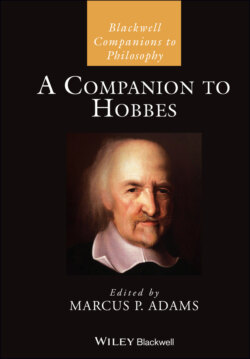Читать книгу A Companion to Hobbes - Группа авторов - Страница 24
1 Hobbes’s Unified Method for Scientia
ОглавлениеHELEN HATTAB
Hobbes locates the study of humans within the natural world. Not just our physical actions, but our passions, our desires, our willings and to a certain extent, our thoughts and deliberations, are determined by the same natural laws as everything else. To the degree that there is human freedom, it cannot involve actions that lie outside the deterministic course of nature. Hobbes was decried as a radical thinker in his day and is still considered a materialist atheist. A major source of resistance to his philosophy stemmed from the implications of his theory of human nature for the foundations of ethics and politics. How can we be held to moral laws without a personal divinity to hand these down, punish, and reward us, and without free will to overcome the animal drives nature determines in us? How can we secure political authority and stability if the right to govern does not derive from a providential God? Hobbes has an ingenious solution to this problem which is well-studied. If you know anything about Hobbes, you probably know that he was an early proponent of the social contract theory of government. On this theory, political authority derives from the voluntary transfer of the power each person has, by natural law, to preserve and protect his or her life to a commonly recognized sovereign. Hobbes’s political theory influenced Benedict de Spinoza, John Locke, and beyond, and his contribution to politics is well researched. Less well-studied is the relationship between Hobbes’s view of natural science and his political theory. A major source of confusion lies in his formal presentation of his philosophical and scientific method. Though Hobbes claims that it generates both types of knowledge, his works on physics and politics seem to employ different methods. This chapter examines the role and nature of Hobbes’s method for science in its historical context to clarify how his theoretical and practical philosophy are unified.
